Ajman Business Setup
If you want to start your own business in Ajman, you should really know about Ajman. Basically, Ajman has one of the smallest populations among the emirates and it is also the smallest in surface area, consisting of only 0.3% of all of the UAE. Ajman covers three separate sections, of which the main part is along the coast of the Persian Gulf, situated between Sharjah and Umm al-Qaiwain. A small enclave, the Manama, lies in the mountains and Ajman also shares control with Oman over a mountainous border area, the Masfut.
01
Ruler
Ajman has always been ruled by the Al Nuami family. Like the other Emirates of Dubai, Sharjah, Ras Al Khaimah and Umm Al Quwain, Ajman too was a signatory to the General Maritime Treaty with Britain in early 1820 (signed by Sheikh Rashid bin Humaid Al Nuaimi), which consigned it to becoming part of the British territory in order to keep the Ottoman Turks out.


02
With the formation of the Federation in 1971, Sheikh Rashid bin Humaid Al Nuaimi led Ajman into becoming part of the United Arab Emirates.
His Highness Sheikh Humaid bin Rashid Al Nuaimi, Member of the Supreme Council for the Union, is the current ruler of Ajman, with his son Sheikh Ammar bin Humaid Al Nuaimi taking on the mantle of Crown Prince
Infrastructure
The Emirate of Ajman has a functional and working infrastructure for residents, tourists and investors. The government has made sure that all sectors of industry have ample amenities to facilitate the growth and progress of the economy. Ajman has superb road connectivity with the rest of the emirates, making it easily accessible from anywhere within the UAE.
Ajman Port is well equipped to handle all types of vessels and cargo material from around the world. It has 8 berths to handle all sorts of merchandise including cargo containers. It has also provided for warehousing facilities for incoming cargo of chemicals, fodder, waste paper, garments, equipment etc. There is also provision for open storage space in 127,300 square metres. Two dry docks have also been set up to facilitate repair and maintenance work. The Port Authority has made sure that the port is equipped with state of the art facilities.
The Ajman Free Zone has the ideal location for routing products manufactured in the Emirate to the regional markets. With cheap energy and no bureaucracy, the free zone has been successful in facilitating investors with the tools necessary for successful trade. The Ajman Industrial and Trade Free Zone is brilliantly organized for easy access of goods, to and from the various industries in the emirate, to be shipped from Ajman port.
The Emirate of Ajman has an excellent connection of roads making it a preferred base for all investments. It is extremely close to the Emirate of Sharjah and about forty minutes away from Dubai. The emirate is not only well connected through roads but also through telecommunications. The national provider Etisalat provides mobile and landline services, and high speed internet for mobile connectivity.
The well equipped and high quality infrastructure available in Ajman makes it an ideal trading and industrial centre, pulling investors and businessman to the Emirate in droves.
Economy / Ajman Free Zone Authority
Unlike its more famous neighbours, Ajman has not had the benefit of oil revenues for its economy. The emirate has been dependent mainly on agriculture, trade and fisheries for its GDP. These were the industries on which the economy of the emirate sustained itself for many years. In recent years however, Ajman has seen extensive economic growth from commercial, industrial and construction activities.
The transformation of Ajman to a heavy duty industrial zone saw radical changes in the Emirate that brought with it revolutionary infrastructural modifications. Now, the emirate enjoys the status of being a self reliant economy exporting various products across the world. With its resources Ajman has been successful in attracting various investors to make the Emirate their base of operations.
The agriculture sector in the Emirate has also experienced considerable expansion in the number of farms in recent years. The sector has attracted investment to the development of new vegetable farms with modern irrigation methods and plastic green houses using underground water. Fruits including dates and vegetables produced from the farms meet a significant proportion of the Emirate’s local consumption.
More than 50% of the country’s garment manufacturing units are operational in Ajman and more than 10% of industrial factories are based here, according to the Federal industrial registry. An extensive range of products is manufactured here including plastic, leather products, garments, pipes, furniture, iron and steel, chemicals and various other mineral products. Being an extremely busy port, Ajman also has ship and speed-boat building factories aside from oilfield platforms.
This staggering boost to the economy is also because of the various facilities and incentives provided by the Ajman Government to multinational corporations. With extremely competitive rates at which to set up offices for the Middle East region, Ajman is the number one choice for business men moving to MENA. The government has made all possible arrangements for the conveniences of investors – be it allocating additional areas for industrial units or giving space within the premises of Ajman seaport, to exporting companies – to be provided.
Ajman has recently emerged as a well equipped, self supporting and modern city that is poised for greatness in sync with Dubai’s economic boom.
History & Traditions
- The Nuaimi family has been ruling Ajman, the smallest of all 7 emirates of the UAE, since the early 18th century. His Highness Sheikh Humaid bin Rashid Al Nuaimi currently rules the Emirate. The Crown Prince of Ajman is his son, Sheikh Ammar bin Humaid Al Nuaimi.
- In early 1820, Ajman signed up to the General Maritime Treaty to become a British Protectorate against the Ottoman Turks.
- Under the patronage of Sheikh Humaid Bin Rashid Al Nuaimi, Ajman joined the federation of UAE on 2nd December 1971.
Economy / Ajman Free Zone Authority
Still preserving the cultural heritage, most of the buildings in Ajman have traces of Islamic architecture. The old city still has a few ancient houses having open courtyards, square block shapes and typical Arabian style relief.
The architecture of the UAE is characterised by symmetrical, rectangular and square towers and building blocks with Islamic motifs in the form of stars, Islamic calligraphy or design, and fine floral patterns. The materials used by Arabs in olden days were mud, dung, chalk, red clay, sea shells and water, with palm fronds providing roofing material. The layout of houses would include separate quarters for men and women with a common central courtyard or area where families could congregate. Decorations would include handcrafted and carved wooden furniture, hand-woven rugs and tapestries. Down the years, marble, gold inlay and gilding, granite and colourful glass have all evolved in their use for decoration in the Arabian home. Wind towers were a common feature of Arab homes and formed a particularly significant part of the region’s architecture – the towers would catch passing winds and swirl them into the heart of the house, giving ventilation and much needed air to the the real estate industry, Ajman now boasts a blend of Islamic and modern architecture in its buildings. Tall towers are also making their way toward enhancing the skyline of the Emirate.

Climate
- Situated alongside Sharjah, Ajman boasts a long and picturesque coastline. As a result, the Emirate enjoys cooler climes and is a great getaway for resort or beach action.
- During the summer months, it experiences considerable levels of humidity.
- Like most other parts of the country Ajman enjoys moderate climates. Months from October to March are very pleasant, whereas the summer months are punishing.
- Temperatures vary from 14 degrees Celsius to 54 degrees Celsius.
Freezone
-

Business Setup In UAE Free Zones
Company Formation & Registration, Incorporation in UAE Free zones…
-
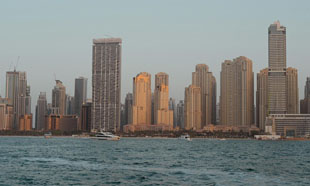
Freezones in Dubai
The UAE business environment is divided into two sectors: onshore and offshore…
-
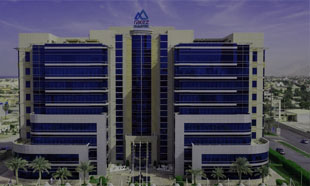
Ras Al-Khaimah Free Zones
Ras Al Khaimah (RAK), located only 45 minutes away from business hub Dubai..
-

Abu-Dhabi Free Zones
Business venture establishment in one of the free zones in Abu Dhabi is an alluring option for foreign..
-

Sharjah Freezone
The Sharjah freezone provides foreign investors with an opportunity to set up their business in the UAE…
-
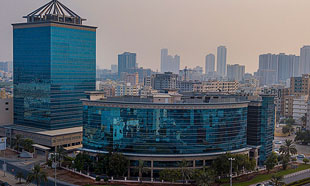
Ajman Free Zone
Looking into setting up a business in one of the free zones in the UAE? Consider going for an Ajman free…
-
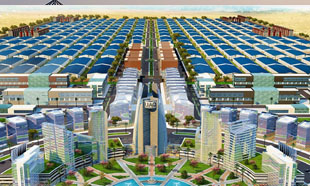
UAQ Free Zone
The Ahmed Bin Rashed Port & Free Zone is located on the West Coast of the United Arab Emirates,…
-
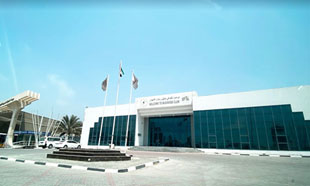
Fujairah Free Zone
Fujairah’s strategic & unique location, as the UAE’s only Emirate on East Coast…
-

2,300+ Real Customer Reviews on Google.
<!–
Fujairah’s strategic & unique location, as the UAE’s only Emirate on East Coast…
–>
Get A QUICK QUOTE
WE GET BACK WITHIN A COUPLE OF HOURS.
Setting up a business in the UAE can be an overwhelming experience for the uninitiated but we can make this job truly easy for you. Talk to our expert consultants for free & decide the best course of action for yourself, today.


